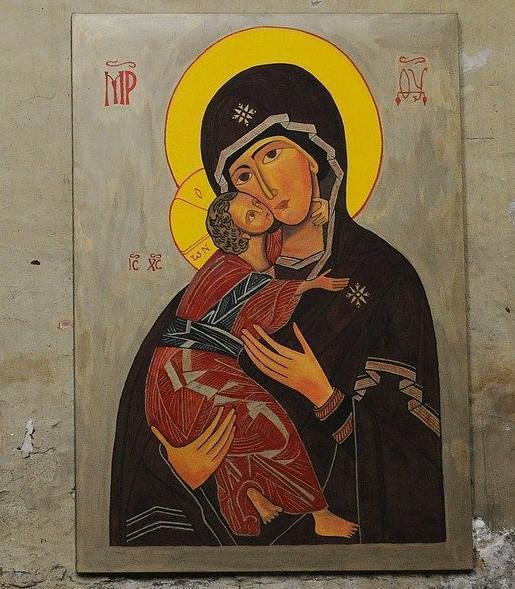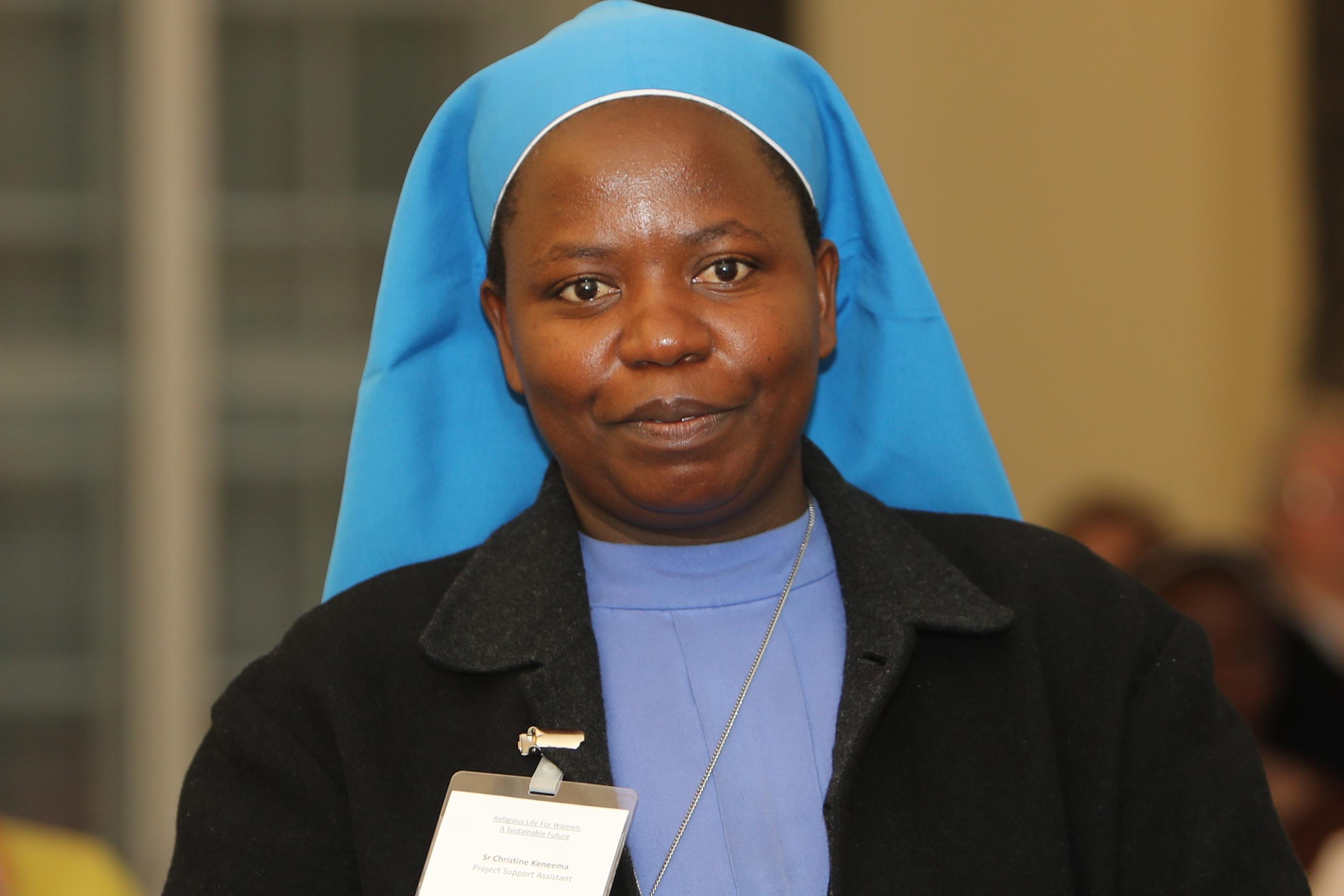Constructive Catholic Theology
The Bede Chair
Through a creative partnership between the Diocese of Hexham and Newcastle, religious orders, and a private trust, the Bede Chair was established in 2007 and is the first endowed Chair of Catholic Theology within a secular UK university. The holder of the Bede Chair is a figurehead for the Durham Centre for Catholic Studies and is involved in a wide range of outreach activities. The Chair has been held by Prof. Karen Kilby since 2014. Karen has written widely on systematic theology, specifically on the Trinity, on Catholic theologians Karl Rahner and Hans Urs von Balthasar, and on evil, love, and suffering. Resources from some of Karen’s outreach work can be found in the Resources section of the CCS website.
Receptive Ecumenism
The essential principle behind Receptive Ecumenism is that the primary ecumenical responsibility is to ask not "What do the other traditions first need to learn from us?" but "What do we need to learn from them?" The assumption is that if all were asking this question seriously and acting upon it then all would be moving in ways that would both deepen our authentic respective identities and draw us into a more intimate relationship.
More about Receptive Ecumenism
Boundary Breaking
Boundary Breaking is a three-year research project being conducted in collaboration with survivors and organisations in the Catholic Church, examining if/to what extent aspects of Catholic culture and understanding have contributed to the creation of an environment in which abuse, and its subsequent mishandling, was and is possible. In April 2024, the project published its findings in The Cross of the Moment, which was followed in October by the quantitative report.
More about the Boundary Breaking project
Conversations, Culture and Communion
Following on from the Boundary Breaking project’s research into clergy sexual abuse in the Catholic Church in England and Wales, a new three-year project was launched in October 2024: “Conversations, Culture and Communion” responds to the issues and needs identified in the Boundary Breaking report, The Cross of the Moment. Informed by theology, social sciences, psychology, and – above all – by the wisdom of those with lived experience, the project facilitates conversations, networks, and participative projects with the aim not only of disseminating the learning from The Cross of the Moment, but also of supporting mutual learning and projects for ecclesial revitalisation.
Religious Life Vitality Project
Exploring the vitality and sustainability of religious life for women in the UK and Ireland and East and Central Africa. Funded by the Conrad N. Hilton Foundation and conducted by the Centre for Catholic Studies at Durham University, and the Religious Life Institute and Margaret Beaufort Institute of Theology, Cambridge
Phase 1 considered the sources of vitality for Roman Catholic female religious orders in the UK and Ireland. We asked: What does vitality look like for these congregations and how do they deploy resources (human, physical, financial, spiritual) in support of that vision?
Phase 2a considered the sustainability of the apostolic form of religious life for women in five countries of East and Central Africa, asking: What are sisters saying is the essence of women’s Religious Life in Africa today and into the future? What are the key challenges that hinder this essence? What are the best practices for ensuring the understanding and living of it, and the communication of this to sisters in formation?
Phase 2b asked if religious life as currently lived by apostolic women religious in the UK and Ireland is liveable for new members, and can it attract new members, or are structural and ideological changes necessary to make it translatable and fit for purpose for new generations?
The Centre for Catholic Studies is also home to the International Scholars of the History of Women Religious Association.
The Science of the Saints: St Bonaventure of Bagnoregio’s Quaestiones De Colore
In 2021 Dr William (Billy) Crozier was awarded a three-year Leverhulme post-doctoral fellowship in Franciscan theology. The project will lead to the production of an edition, translation, and commentary of the Quaestiones de Colore. These are found in a little Assisi manuscript which is believed to be a notebook belonging to St Bonaventure from his time as a student in Paris c.1250 and which is written in his own hand.
The scholarly consensus maintains that Bonaventure, unlike Thomas Aquinas and Albert the Great, produced no truly scientific or philosophical works, but instead confined his attention to ‘purely’ theological writings. The Quaestiones de Colore are the only example of a piece of ‘scientific’ work attributable to St Bonaventure and, thus, are highly important. If their authenticity is accepted, they would offer the basis for a fundamental shift in how we view Bonaventure’s place within the theological-philosophical milieu of the 13th century. They would also speak greatly to the vexed question of his attitude towards the relationship between faith and reason, and the place of philosophy in Christian wisdom – a subject upon which some of the greatest Bonaventurian scholars of the last century (e.g., Étienne Gilson and Joseph Ratzinger) spilled much ink. The project will also show how Bonaventure, as well as several other of the early Franciscans – Roger Bacon, Robert Grosseteste, Alexander of Hales, Richard Rufus of Cornwall etc. – all made important contributions, equal to those made by the Dominicans, Albert the Great and Thomas Aquinas, to the scientific theories of light, colour, matter, vision, and motion.
The animating spirit of the project is not that of the history of science. Rather, its modus operandi is decidedly theological: to show how the ‘scientific’ contributions of the early Franciscans can be understood within the framework of Franciscan creation theology and its underlying assumptions about faith and reason, the Franciscan love of nature, and Bonaventure’s personal belief that ‘Omnis creatura narrat sapientiam Creatoris’ (Each creature proclaims the wisdom of the Creator).
La Retraite Fellowship in Theology and Spirituality
 This project began in October 2018 with the appointment of Dr Elizabeth Rose Powell to this three-year post-doctoral research position funded by the Sister of La Retraite. Elizabeth’s project, entitled Travailing Toward Vision: Julian of Norwich and the Art of Loving Attention, inquires into the theology and spirituality of forms of loving attention by way of reading Julian of Norwich’s Revelations of Divine Love in dialogue with artists of the 20th century. Variably described as a ‘spiritual artist’ and ‘visual theologian’, Julian’s Revelations takes the form of recursive meditations not only on a series of visions but also through the sustained development of thinking through images. For Julian, it is not only the intensification of vision but sight ‘guided by love’ or ‘affectionate affirmation’, that is necessary for the true appearing of things. It is hoped that by dwelling in the creative gaps and innovative forms of Julian’s images, the dynamism of contemplative practice and the illumination of things as they appear under the eye of love may be fruitfully explored.
This project began in October 2018 with the appointment of Dr Elizabeth Rose Powell to this three-year post-doctoral research position funded by the Sister of La Retraite. Elizabeth’s project, entitled Travailing Toward Vision: Julian of Norwich and the Art of Loving Attention, inquires into the theology and spirituality of forms of loving attention by way of reading Julian of Norwich’s Revelations of Divine Love in dialogue with artists of the 20th century. Variably described as a ‘spiritual artist’ and ‘visual theologian’, Julian’s Revelations takes the form of recursive meditations not only on a series of visions but also through the sustained development of thinking through images. For Julian, it is not only the intensification of vision but sight ‘guided by love’ or ‘affectionate affirmation’, that is necessary for the true appearing of things. It is hoped that by dwelling in the creative gaps and innovative forms of Julian’s images, the dynamism of contemplative practice and the illumination of things as they appear under the eye of love may be fruitfully explored.
Transformative Renewal in the Church

Revd Dr John O'Brien is the Principal Investigator for this project, aiming to contribute to the transformation of pastoral praxis in the church. This work is made possible by a partnership with Porticus.
The background research question for the project is: What are the particular factors in the corporate culture of the Catholic Church–historical, ideological, institutional, and sentimental–that tend to block the implementation of the very change that the Church espouses and how may these factors be addressed in a transformative way, at various ecclesial levels?
Due to Covid, the scoping exercise was extended until 2020-21. Research during 2021-22 is focused on initiatives in Hallam Diocese; Anglesey; and the Root and Branch Synod; and asks the question:
In the initiatives being undertaken by these three ecclesial entities; what is happening, how and why is it happening and to what extent are these initiatives transformative receptions/implementations of Vatican ll according to the ministry-writings of Pope Francis?
On the premise that we are in the winter of one historically conditioned way of imagining the church, the project explores signs of spring, aiming to reclaim this historical moment as one of hope, by working for a transformed church.
Dr O’Brien has written a series of articles for Doctrine and Life which can be purchased on its website.
.jpg) La Retraite Fellowship in Lived Theology, Trauma, and Reconciliation
La Retraite Fellowship in Lived Theology, Trauma, and Reconciliation
In this fellowship funded by the Sisters of La Retraite, Dr Victoria Biggs is investigating points of intersection between post-Holocaust and liberation theologies, with a focus on how largely unexplored histories (e.g. the Nazi persecution of the Roma) might inform and enrich contemporary theological responses to genocide and mass violence.
Two-Year Patristic Lectionary

A 'patristic lectionary' is a series of readings from the fathers (in Latin patres) of the Church. Here we make available a two-year patristic lectionary initially edited by Stephen Mark Holmes (University of Edinburgh School of Divinity) and subsequently re-edited and formatted by Michele Freyhauf (Durham University); for Pluscarden Abbey, Scotland. The aim of this two-year patristic lectionary is:
- To have each patristic reading either related to the Scripture reading or to the season of the Church's year.
- To have a reading for every day of the Temporal cycle (i.e. including days such as Christmas, Ascension, Sacred Heart).
- To have the vast majority of the 'patristic' readings from the Fathers of the Church, although following medieval precedent writers such as Origen have been included. This gives it ecumenical value.
- To use readings from the one year cycle in the Divine Office and the two year cycle of Word in Season whenever possible.
- To include the texts of a complete two-year Scripture cycle, as approved by the Holy See, for use with the patristic readings.
Download the full two-year patristic lectionary
The Tablet 175th Anniversary
The CCS was delighted to host the international conference entitled The Spirit of Catholic Renewal: Signs, Sources, and Calling (2-4 November 2015) marking the 175th anniversary of the first edition of The Tablet. The varied programme included a host of top speakers analysing the Catholic moment:
|
Session Title |
Speakers |
|
Discerning the Catholic Moment: Reading the Signs of the Times |
Alana Harris Tina Beattie Myriam Wijlens |
|
The Spirit and the Church |
Stanley Hauerwas (main speaker) Paul D. Murray (respondent) |
|
The Preferential Option Today |
Agbonkhianmeghe Orobator SJ Anna Rowlands |
|
Church, Mercy and the Signs of the Times |
HE Cardinal Walter Kasper (main speaker) Janet Soskice (respondent) |
|
Putting Our Own House in Order: The Challenges Within |
Ethna Regan Timothy Radcliffe |
These sessions are available to listen to on Soundcloud.
'Learning on the Way' Symposium - 2023
In late June 2023, the Centre for Catholic Studies (CCS) at Durham University held a two-day symposium, ‘Learning Together on the Way’, which explored the potential synergy between Synodality and Receptive Ecumenism.
The purpose was to put the CCS’s internationally-regarded work on Receptive Ecumenism in service of the synodal pathway on which the Catholic Church has embarked and to invite assistance with this task from theologians and leaders of six other major Christian traditions with significant historical presence in England and Wales.
As explored in the seven pre-circulated tradition-specific briefing papers (linked below), the key question throughout was ‘What can the Catholic Church learn from the understanding and experience of these Western Christian traditions as it seeks to become a more synodal church?’
Near-140 participants from across the participant traditions and the English and Welsh Catholic Church shared in the small-group discussion process that lay at the heart of the symposium and likewise contributed to the plenary reflections. These sessions were held in and around Durham, at the University, at Ushaw College, and at St Cuthbert’s Catholic Church.
As launch for the proceedings, the 2023 Bishop Dunn Memorial Lecture was presented by Sr Nathalie Becquart XMCJ, Undersecretary of the Office of the Synod of Bishops, in which she explored the essential interrelationship between Ecumenism and Synodality.
Convened and led by Prof. Paul D. Murray and Dr Gregory A. Ryan, in collaboration with other CCS colleagues, the event was supported by: Porticus International, the Diocese of Hexham and Newcastle, the Catholic Bishops’ Conference of England and Wales, the National Board of Catholic Women (NBCW), and the Newman Association.
Briefing Papers
Baptist Briefing Paper - Paul S. Fiddes
Catholic Briefing Paper - Gregory A. Ryan
Church of England Briefing Paper - Callan Slipper
Methodist Briefing Paper - Liz Kent
Pentecostal Briefing Paper - Wolfgang Vondey
Quaker Briefing Paper - Elaine Green
United Reform Church Briefing Paper - Elizabeth Welch
Programme
Learning on the Way 2023 Symposium Programme
Interview with Sr Nathalie Becquart
Bernadette Kehoe of the NBCW was granted an interview with Sr Nathalie during her stay in Durham. You can watch the interview on the NBCW website at the link below


/prod01/prodbucket01/media/durham-university/research-/research-centres/catholic-studies-centre-for-ccs/Franciscan-Studies-Summer-School-1-2395X1026.jpg)
